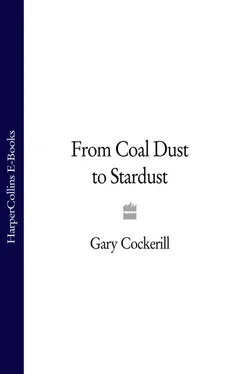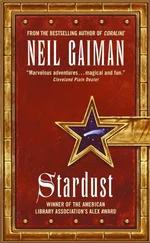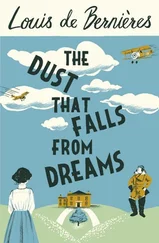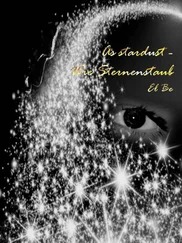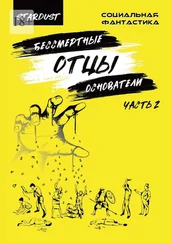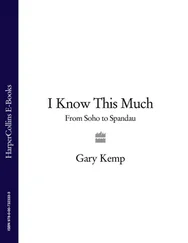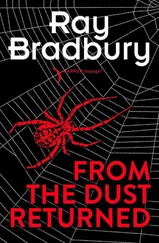All children have their little quirks. Some carry a security blanket, others suck their thumb – I, on the other hand, used to flap. Whenever I got excited I would start waving my hands in front of my face as if I was rubbing chalk off an imaginary blackboard, then I’d run round and round on my tiptoes, frantically flapping all the while. This would sometimes happen several times a day, frequently in public.
‘Gary!’ Mum would hiss under her breath as I tore round a shop. ‘For God’s sake will you stop that flapping!’
If a child behaved like this nowadays he would probably be diagnosed with Attention Deficit Hyperactivity Disorder and promptly put on a course of Ritalin; in Seventies Yorkshire, however, the solution was tap-dancing.
Looking back, I was always destined to be a stage school kid. The endless shows and musicals our little gang put on in Dad’s garage had left their mark: my cousin Julie had blossomed into a talented performer (later becoming a dancer on cruise ships) and cousin Mandy was attending the Italia Conti stage school in London. But it was my Auntie Ann who inspired me to take my love of the spotlight to a whole new level.
By the time I was eight or nine, my days as my sister’s best friend, dress-up doll and number one playmate were almost numbered. Lynn was hitting puberty, blossoming into a stunning young woman, boys were sniffing around her and I suspect that having an effeminate little brother hanging about was seriously cramping her style.
My girl cousins, who were all older, were outgrowing me too, and I had few school friends of my own age to play with. Unlike most boys of my age I hated sports, so didn’t even have the excuse of a kick-about to get me out of the house. Instead, I would spend the weekend with my Auntie Ann and Uncle Michael who lived in nearby Halifax with their son Craig.
For a kid with an overactive imagination and a taste for the dramatic it couldn’t have been a better place to visit. Auntie Ann was a girl-guide leader and Uncle Michael (my dad’s younger brother) worked in a sweet factory. He would sometimes take us to visit and I would watch entranced as rainbow-coloured delights danced past on conveyor belts, breathing in the heady hot-sugar vapours and imagining I was Charlie let loose in Willy Wonka’s Chocolate Factory. Almost as magical to me were the family’s trips to church. My parents were atheists, but Ann and Michael were regular worshippers and so every Sunday morning we would put on our best and go just down the road to St Martin’s.
I loved everything about those mornings in church: the singing, the stained-glass windows, the gang-like chumminess of Sunday school and the theatre and mystery of the service itself. It wasn’t the religion, it was the drama of the place that really moved me (although a few years later I would appear in a local production of Jesus Christ Superstar and I would cry every single night when the actor playing Jesus was crucified). To me, going to church was almost like putting on a show – which brings me neatly on to Auntie Ann’s other great love: Rodgers and Hammerstein.
Ann adored classic Hollywood musicals with a passion I soon grew to share and the house echoed with the soundtracks to Carousel, Oklahoma! and Singin’ in the Rain. It is she who is also to blame for my Streisand obsession: I remember her putting on the Funny Girl album and just being mesmerised by this incredible voice belting out ‘Don’t Rain on My Parade’. Pretty soon Auntie Ann’s kitchen replaced Dad’s garage as my own personal theatre, and I would rope in cousin Craig to star in productions alongside me. Poor Craig, I thought he enjoyed himself as much as I did but my auntie told me just the other day that he always dreaded my visits:
‘Please, Mum, can’t I stay with Grandma when Gary comes to stay? He always makes me dress up as a girl …’
And so, at the age of nine, thanks to a heady blend of Rodgers and Hammerstein and the Holy Trinity, my future suddenly and magically became clear: I would go on the stage. I would be a child star. And, for a while, I suppose that’s exactly the way it turned out.
* * *
The Lynn Selby and Phil Winston School of Dance and Drama was located in Doncaster town centre, about five miles from our home in Armthorpe. It was an offshoot of the prestigious Sylvia Young school in London, offering classes in drama, mime, tap, ballet, modern jazz and singing to 6-16 year olds, and had a great track record in getting local kids into the entertainment industry.
I spotted an advert for the school in the paper and after weeks of begging my resolutely untheatrical parents to let me attend, I started going to classes every Thursday after school and on Saturday mornings, although pretty soon I’d be making excuses to be there as much as possible.
The school was run by a professional couple in their late twenties, actress Lynn Selby and Phil Winston, a dancer and choreographer. It was Lynn I really looked up to. She was successful and sexy, all black hair, voluptuous curves and violet eyes – for a time I thought she actually was Elizabeth Taylor.
Inspired by Lynn, I quickly became a regular on the local speech and drama festival circuit, blossoming from a shy little boy into a regular Laurence Olivier. The Barnsley Music Festival, Worksop and Pontefract Speech and Drama Festival – there wasn’t a competition in the greater Doncaster area where nine-year-old Gary Cockerill didn’t turn up to dazzle ’em with a poetry reading or mime solo and leave clutching a medal.
My festival crowd-pleasers included a poem called ‘Colonel Fazackerley Butterworth-Toast’ by Charles Causley:
‘Colonel Fazackerley Butterworth-Toast
Bought an old castle complete with a ghost
But someone or other forgot to declare
To Colonel Fazak that the spectre was there.’
and a reading from My Family and Other Animals by Gerald Durrell. I also did well with a group mime called ‘Fickle-Hearted Sally’ with my best friend at drama school, Gavin Morley – a stocky little bruiser with an angelic face and a halo of golden hair – and his girlfriend Nicola Simpson. But it was my performance of ‘I’ve Got an Apple Ready’ by John Walsh at the Barnsley Festival that really caused a stir and is possibly still talked about to this day. At this particular festival there was a choice of two poems for the age group I was in, and the one that I set my heart on started like this:
‘My hair is tightly plaited, I’ve a bright blue bow.
I don’t want my breakfast and now I must go.
My satchel’s on my shoulder, nothing’s out of place,
And I’ve got an apple ready just in case.’
It’s basically about how a little girl gives this bully her apple to stop him chucking her beret up in a tree on her way to school.
When I told Lynn Selby I wanted to do this particular poem for the festival she said gently, ‘Gary, you realise that this poem is actually meant for a little girl …?’
My parents were even more tactful: ‘Are you sure you don’t want to try the other poem, love? You might find it a little bit … easier.’
But I was determined. I knew I could ace ‘I’ve Got an Apple Ready’ and I didn’t care what anyone else thought.
I clearly remember the festival adjudicator’s expression as I climbed up on to the stage and announced which poem I would be performing. I can still see the other parents in the audience looking embarrassed and shaking their heads at this strange little boy as the other kids sniggered at me. But I didn’t care. I was that coy little girl with the blue bow and beret, goddammit! I’d show them. Ninety-eight points and a gold medal later and my cockiness levels had shot through the roof.
Читать дальше
